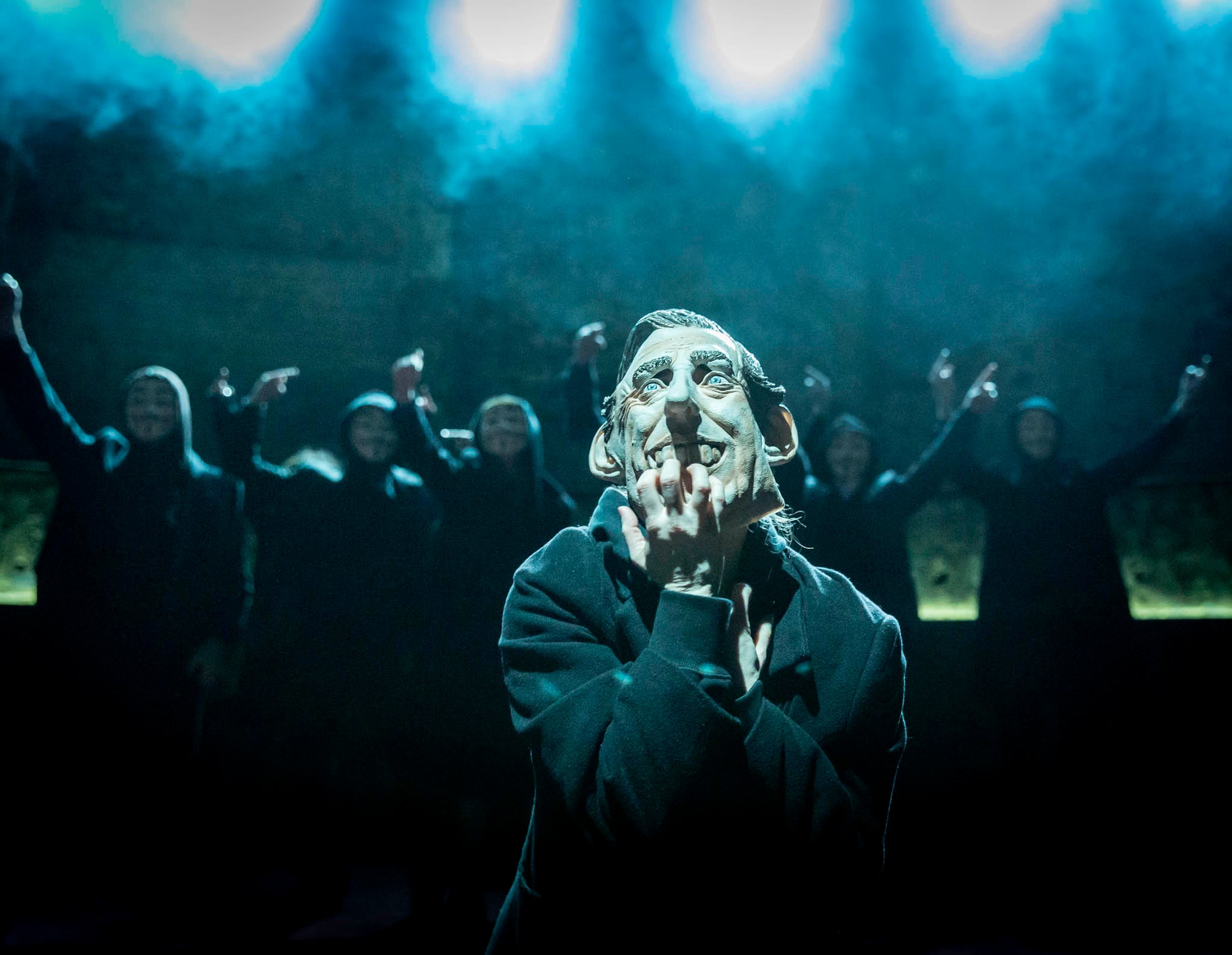King Charles III, Almeida, theatre review
For stimulating comedy, King Charles III is up there with Shaw's Apple Cart

In a piquant twist of fate, the premiere of Mike Bartlett's bracingly provocative and outrageously entertaining new play about the future of the monarchy has coincided with news of the death of Sue Townsend.
Her novel The Queen and I (which she later dramatised) explores a fantasy scenario in which a republican government despatches the deposed Windsors to the hell-hole of a Midlands council estate where (shades of King Lear) her contact with deprivation radicalises the ex-monarch.
Written largely in cod blank verse, with many witty echoes of Shakespeare's history plays, Bartlett's speculative drama is a more studied and politically thoughtful act of lese-majeste.
Performed, in Rupert Goold's pitch-perfect production, on a raised purple dais, the piece begins liturgically with the funeral of the present queen before proceeding to Charles III's first meeting with his Labour Prime Minister. “Shall I be mother?” he asks with a roguish twinkle as he pours the tea.
Ironic, because it quickly becomes apparent that he has no intention of quiescently following her precedent. Called on to sign a privacy bill imposing restrictions on the press, he declares it an affront to traditional British freedoms, refuses to give it the royal assent, and sparks a constitutional crisis and civil disturbances when, in the spectacular close to the first half, he avails himself of another prerogative and personally dissolves parliament.
The real-life Charles may be noted for his controversial letters to ministers and for his forthright views but it is, of course, exceedingly improbable that he would begin his reign by blocking legislation. Yet the particular bill that is the catalyst in Bartlett's extreme hypothetical scenario is a very clever dramatic hook.
It shows Charles putting principle first, given the tabloid intrusions suffered by his own family. But the very enlightenment of his views on the topic (the exact terms of the bill are left conveniently vague) intensifies the question of whether we would ever want an unelected, hereditary monarch overruling the democratic decisions of the House of Commons.
Tim Piggott-Smith's excellent performance shows you a flawed, conscience-stricken idealist who, after a lifetime of frustration, rebels against becoming a Spitting Image puppet king (“Without my voice and spirit, I am dust/This is not what I want, but what I must”). Droll Shakespearean parallels abound as the Windsor firm join forces against him, with Diana's ghost stalking the stage uttering ambiguous prophecies and with Lydia Wilson's Duchess of Cambridge, all smiles and underlying steel, taking a leaf out of Lady Macbeth's book as she puts pressure on Oliver Chris's uncanny William to intervene and protect the interests of their children.
Richard Goulding's very likeable Harry is a latter-day Prince Hal, haunting Boujis rather than the Boar's Head. He falls in love with a punky republican art student (Tafline Steen) whose own harrassment by the tabloids over candid photographs puts a different perspective on the privacy bill.
Only in the suggestion that Charles's sons are avenging their mother does the play seem to me to overstep the mark. Otherwise, for stimulating comedy about this institution, King Charles III is up there with Shaw's Apple Cart, in which the monarch abdicates and set up his own political party.
To May 31; 0207 359 4404
Join our commenting forum
Join thought-provoking conversations, follow other Independent readers and see their replies
Comments
Bookmark popover
Removed from bookmarks